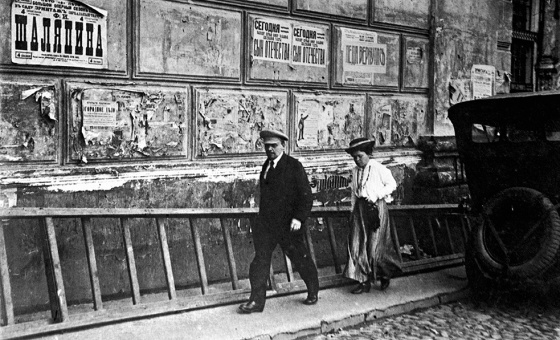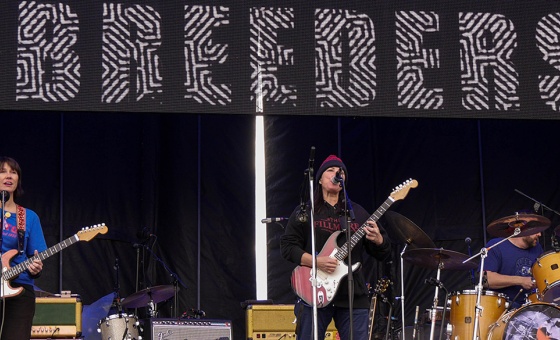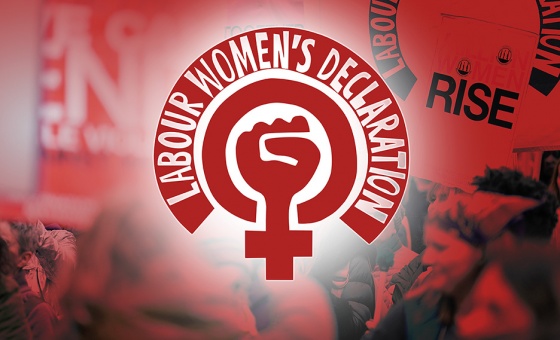This is the last article you can read this month
You can read more article this month
You can read more articles this month
Sorry your limit is up for this month
Reset on:
Please help support the Morning Star by subscribing here
After the coup, General Pinochet’s dictatorship lasted 17 years.
Neoliberalism and monetarism became the new mantra.
Bright new shopping centres and gleaming high-rise blocks in Santiago today speak of the affluence enjoyed by the military, the landowners and the entrepreneurial elite.
Everything that was public, from health to education, is now private.
Most workers are on short-term contracts with no holiday pay or maternity rights. Those lucky enough to hold down jobs work very long hours.
We heard recently that no-one is to be charged over the 2010 mining accident that trapped 33 miners deep underground for over two months.
Despite the fact that the miners had reported hearing rumblings before the accident and that in the previous 10 years three miners had been killed in that privately owned mine, the owners have got off scot-free.
Other recent news from Chile is that after a nine-year investigation into how the late dictator Pinochet enriched himself has ended with no charges being brought against his family.
Investigators said that they could not press charges since they could not identify the source of most of the money, said to amount to some £14 million.
The wealthy elite continues to rule with impunity.
Chile is urged by its new leaders and by the military to “look forward.” “Let’s put the past behind us,” they say.
But two organisations — the Relatives of the Disappeared Prisoners (AFDD) and the Relatives of Executed Political Prisoners (AFEP) — have fought tenaciously to bring to book those who caused this catastrophe 40 years ago in Chile.
Over the past 15 years, their lawyers have succeeded in putting behind bars the top echelons of the sinister military secret services, the DINA and the CNI.
Many military personnel guilty of summary executions and disappearances are now in prison.
Recently two lawyers, Eduardo Contreras and Alfonso Insunza, have succeeded in bringing a lawsuit against the very instigators of the coup.
This will force into court not only the military henchmen who did the junta’s dirty work but the politicians, including Christian Democrat ex-president Patricio Aylwin, who went along with the coup, the journalists who helped to frame innocent people and get them sent to their deaths and the secret backers sitting in CIA offices in the US.
The thousands killed, disappeared or imprisoned for years without trial deserve nothing less than this — to bring to book those responsible for the illegal coup 40 years ago.
In my book I attempt to answer some of the questions arising from the failure of Popular Unity’s constitutional government, led by Salvador Allende.
The Popular Unity alliance had not come out of nowhere but was the result of decades of work by the communist and socialist parties to elect a government which would truly represent the working people.
So what were the main factors in its demise? What was the role of the mass media? Is it possible to achieve fundamental, revolutionary change by constitutional means?
More influential than any factors such as the lack of synchronism in elections or the insufficient unity among the forces of the left or the actions of the ultra-left was the single-minded strategy of the powers that be in the United States to destabilise and unseat this new, upstart government of Salvador Allende.
I have told how in 1970 they tried to prevent Allende’s election being ratified by the Chilean Congress.
Even before his election, in July 1970, the United States International Telephone and Telegraph Company (ITT), which had extensive holdings in Chile, offered $1 million to the CIA to prevent Allende’s election that September.
Later the CIA increasingly financed and gave support to groups, parties and organisations opposed to the Popular Unity government.
They sent finance to prop up right-wing newspapers, to help arm the ultra right-wing Patria y Libertad (Fatherland and Freedom) and to support the lorry-owners’ boycott.
The government of Richard Nixon and Henry Kissinger was simply not prepared to let another country — in addition to Cuba — “go communist.”
I think that this outside interference aimed at destabilising the Popular Unity government from the outset and the prevailing international situation, where the rest of Latin America was ruled by pro-US juntas and governments, were the main factors in its demise — more important than any other internal factors.
At the time of the Popular Unity government in Chile, most of the press, TV and radio channels were privately owned. In general they purported to support the constitutional road, but as president Allende tried to introduce his nationalisations and latifundio expropriations, they took on an increasingly anti-government line.
It seemed to me at the time that there were grounds to close down certain media outlets which periodically issued openly seditious calls on the population to act to bring the government down.
To what extent are editors really “free” to question or challenge the status quo in society?
When you have Rupert Murdoch owning a global media empire worth £30 billion, could anyone really envisage — in some hypothetical situation of the future — that he would allow his editors to support a new government anywhere in the world that would be likely to challenge the ruling elites, whether they be latifundistas, oligarchs or transnational companies and banks? I don’t think so.
New presidential elections take place in November this year. The candidate of the centre left is Michelle Bachelet, who was president from 2006 to 2010 and who until recently headed the new United Nations organisation, UN Women. Bachelet is the daughter of General Alberto Bachelet, one of the “constitutionalist” military men whose loyalty to the Popular Unity government and the constitution cost them their lives after the 1973 coup.
She and her mother were themselves detained and imprisoned under the dictatorship.
Some on the left in present-day Chile argue that in her previous presidential term, when she formed part of a grouping called the Concertacion, there was no real challenge to the neoliberal agenda left by the dictatorship in Chile.
However, the Communist Party of Chile, which is still a force to be reckoned with despite years of harsh repression under Pinochet, has called on all its supporters to vote for Bachelet and work towards forming a New Majority, to dismantle the neoliberal model and the political institutions inherited from the dictatorship years.
The fight is on for a new democratic constitution to replace the one enacted in 1980 by Pinochet.
The slogan of the left today in the run-up to the presidential elections on November 17 is “For a New Majority.”
One of the most important “lessons” we can draw from the failure of the Popular Unity government is that without a clear majority of the population supporting a government programme, it is not likely to succeed.
Taking into account all the reasons or possible explanations for the failure of the Popular Unity experiment, one still comes back to the basic fact that the forces of the left at that time in Chile did not constitute a clear majority. And unless there is strong popular majority support for revolutionary change, such change is not likely to succeed.
Popular Unity’s valiant attempts to change Chile to benefit the poor, not the rich, failed. But the memory of that process, its aims and its achievements in only three years of government, live on in the collective memory of the people, not only of Chile but of the rest of Latin America and the world.
Kate Clark is author of Chile: Reality and Prospects of Popular Unity, Lawrence & Wishart, 1972 and Chile in my Heart, a Memoir of Love and Revolution, Bannister Publications, 2013, £11.99.









